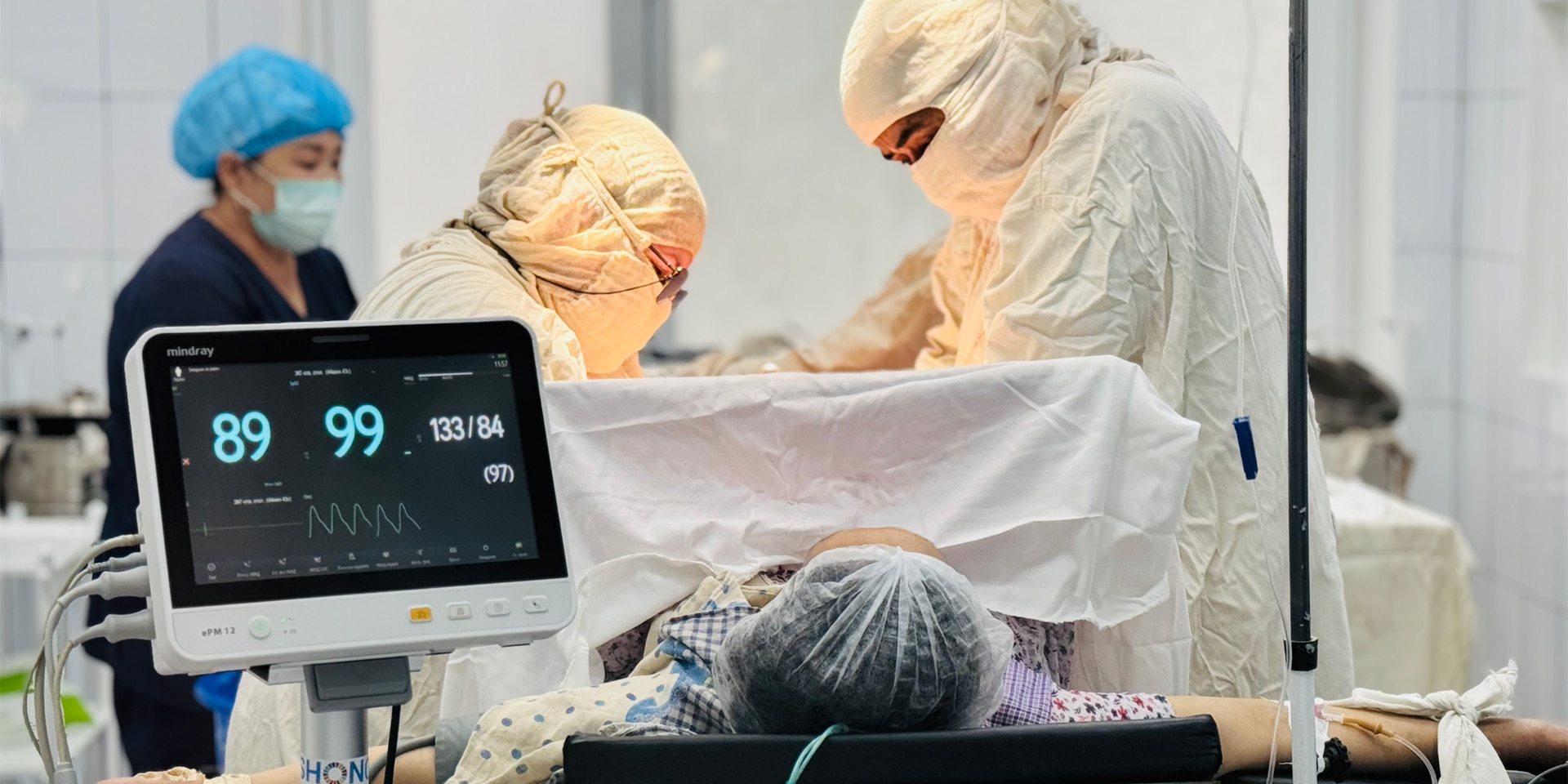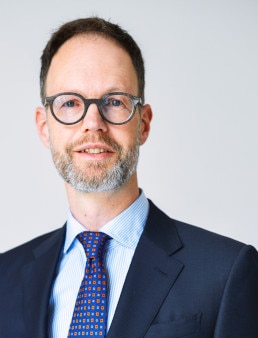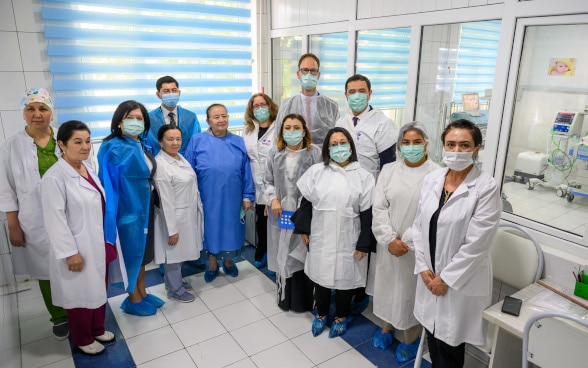Upgrades to maternity units in Uzbekistan thanks to return of confiscated assets
Switzerland is returning confiscated illegally acquired assets to Uzbekistan. The stolen funds will now benefit the people of Uzbekistan thanks to a UN trust fund, the Uzbekistan Vision 2030 Fund, set up by Switzerland and Uzbekistan together with the UN. Among other things, this will see healthcare facilities for expectant mothers modernised at a cost of USD 43.5 million. An interview with the Ambassador of Switzerland in Tashkent, Konstantin Obolensky.

Returned assets from Switzerland have enabled the modernisation of maternity units in Uzbekistan. © SDC
Despite reforms to the health system, Uzbekistan still has significant healthcare needs in areas such as infrastructure and professional skills. The Uzbekistan Vision 2030 Fund project aims to upgrade facilities for maternal and infant health. The Fund is financed by confiscated assets that were acquired illegally.
The first of the 230 maternity units were fitted out with cutting-edge equipment in March and April 2025. One of them, now fully renovated, is in Almalyk, a city around 60 kilometres from the capital Tashkent.
Accompanied by the UN representative in Uzbekistan and Uzbek officials, the Swiss Ambassador to Uzbekistan, Konstantin Obolensky, was able to see the progress made on site and provided the following report on the project:

The assets are returned to benefit the people of Uzbekistan. But who decides which projects are funded?
The decision on how the assets are allocated is made by consensus within the Management Committee of the Uzbekistan Vision 2030 Fund, in which Switzerland, Uzbekistan and the UN are represented. As the ambassador to Uzbekistan, I represent our country on this committee, which initially adopted two priorities for the projects: health and education. With more than 900,000 births per year and a very young population with almost one in three people under the age of 14, the health and education needs in Uzbekistan are significant. After defining these two priorities, the committee chose, again by consensus, the specific projects that would be funded.
Who implements the projects? How does Switzerland ensure that the assets are not misappropriated again? Does the Swiss Agency for Development and Cooperation participate in the implementation?
The projects are implemented by UN agencies (UNICEF, UNFPA, WHO, UNESCO.), which have many years of experience in Uzbekistan, and which can tap into their worldwide know-how. They implement the projects according to UN standards and procedures, which have been reinforced to reflect the particular nature of this restitution. The beneficiaries of the projects (in particular affected families, young mothers, etc.) have the opportunity to report any irregularities they encounter to the relevant UN agencies, with the assurance of a follow-up.
The Uzbekistan Vision 2030 Fund is financed by assets definitively confiscated in criminal proceedings in Switzerland because they had been acquired illegally through corruption. They belong to the people of Uzbekistan. Swiss development cooperation, however, is financed by the Swiss taxpayer. For this reason, it is not the Swiss Agency for Development and Cooperation (SDC) that implements the restitution projects.
Is Uzbek civil society also involved? What is its role?
Yes, one of the Fund's governing bodies is a committee made up of representatives of 17 Uzbek civil society organisations (CSOs) and two international CSOs. It is consulted on the choice of projects, independently monitors their progress and has access to all documents submitted to the Management Committee. The involvement of civil society contributes to the Fund's efficiency and transparency.
How is the restitution perceived in Uzbekistan?
The returned assets are very important to the government and people of Uzbekistan, especially as the sum involved here is so high. The priorities set for the returned assets correspond to those of the Uzbek government reform programme. The renovated and newly equipped maternity unit that I visited today is a tangible result of the restitution Fund that is already benefiting many mothers and newborns, thus affecting whole families. This is very positive and reinforces the merits of this project choice. The experience that the Fund will gain from this first project will be useful in ensuring that future projects have high impacts too.

Today in Almalyk you opened a maternity unit that has been renovated as part of the project aimed at reducing maternal and infant mortality. What concrete results have been obtained in this maternity unit thanks to this project?
We visited the Almalyk maternity centre, which serves as a referral hub for complicated maternal and neonatal cases. Before the Uzbekistan Vision 2030 Fund project began, like most other centres in the country, it struggled with outdated and insufficient equipment and limited staff capacity. Through the project, the facility was renovated and equipped with essential neonatal and obstetric tools, including infant incubators (vital for premature babies), foetal monitors, neonatal resuscitation kits, delivery beds, phototherapy units and sterilisation equipment. In addition, 86 healthcare workers have been trained in key areas such as maternal and newborn care, emergency interventions, antenatal care, family planning and infection prevention – reducing risks for both mothers and babies.
These upgrades and training opportunities have greatly improved the centre's ability to handle complications and ensure safer births (for the whole country: the project has increased from 70% to 75% the survival rate of prematurely born babies weighing 500g–1.5kg).
Restitution of confiscated assets to Uzbekistan
On 16 August 2022, Switzerland and Uzbekistan signed an agreement on the restitution of illegally acquired assets. The restitution agreement covers not only the assets already definitively confiscated in the criminal proceedings in Switzerland in connection with Gulnara Karimova, but also any assets definitively confiscated in the future as part of the ongoing criminal proceedings linked to this individual.
Gulnara Karimova is the daughter of the late former President of the Republic of Uzbekistan, Islam Karimov. Among other things, she is accused of having received corrupt assets for the award of lucrative telecommunications contracts.
The negotiations on the agreement were conducted by the Directorate of International Law (DIL). The DIL and SDC are advising the Swiss embassy in Tashkent with regard to its work on the Fund's Management Committee.
